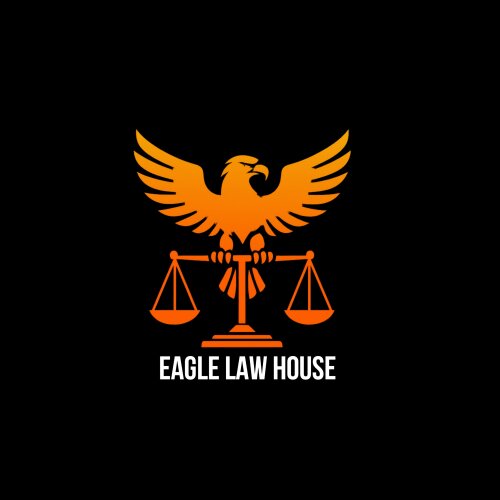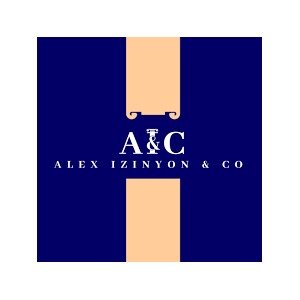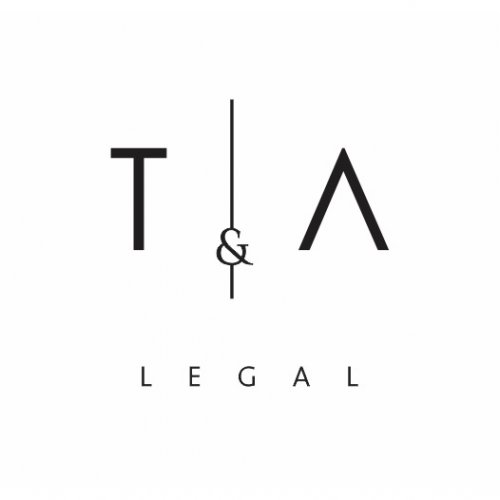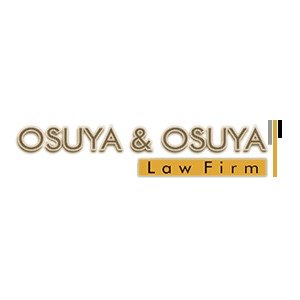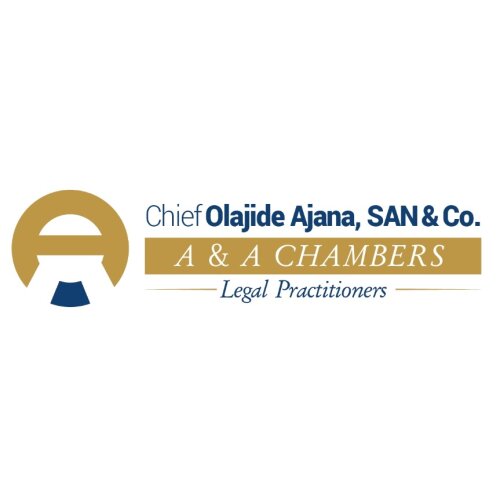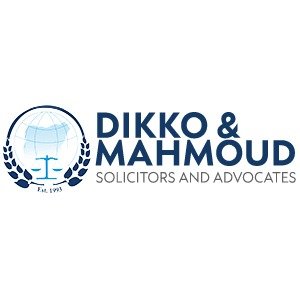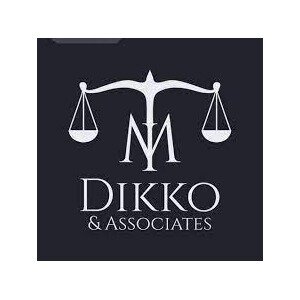Best Commercial Litigation Lawyers in Abuja
Share your needs with us, get contacted by law firms.
Free. Takes 2 min.
List of the best lawyers in Abuja, Nigeria
About Commercial Litigation Law in Abuja, Nigeria
Commercial litigation in Abuja, Nigeria involves the resolution of disputes arising in the business and commercial context. This area of law covers a broad range of matters such as breach of contract, debt recovery, partnership disputes, enforcement of commercial agreements, disputes between shareholders, and more. With Abuja being the nation's capital and a commercial hub, its courts regularly hear commercial cases, ranging from small business disagreements to complex multi-party litigation involving large corporations. The legal system in Abuja follows the federal structure of Nigeria, influenced by statutes, case law, and local civil procedure rules.
Why You May Need a Lawyer
You may require the services of a commercial litigation lawyer in various scenarios, such as when facing a business dispute that cannot be amicably resolved, when another party breaches a commercial agreement, if you need to recover outstanding debts, or when your business interests are threatened by litigation. Lawyers can help by providing legal advice, negotiating settlements on your behalf, filing or defending lawsuits, navigating court procedures, and representing your interests before a judge. Engaging a lawyer early often helps in resolving matters efficiently and minimizing potential losses.
Local Laws Overview
Commercial litigation in Abuja is guided by federal statutes such as the Companies and Allied Matters Act, Contracts Act, Arbitration and Conciliation Act, and sector-specific regulations, in addition to laws enacted by the Federal Capital Territory. Court procedures are governed by the Federal High Court (Civil Procedure) Rules and the High Court of the Federal Capital Territory Civil Procedure Rules, which set timelines and procedures for filing and defending cases. Alternative dispute resolution is also promoted, particularly mediation and arbitration, as a way of resolving commercial disputes without lengthy court processes. Legal practitioners must be licenced with the Nigerian Bar Association and observe the rules of professional conduct.
Frequently Asked Questions
What is commercial litigation?
Commercial litigation refers to legal proceedings involving disputes that arise in the context of business transactions, including disputes over contracts, business arrangements, and other commercial matters.
What kinds of cases fall under commercial litigation?
Common cases include breach of contract, debt recovery, shareholder disputes, partnership disagreements, disputes arising from the sale of goods or services, and enforcement of guarantees or indemnities.
Which courts handle commercial litigation in Abuja?
Commercial disputes are primarily handled by the High Court of the Federal Capital Territory and, in some instances, the Federal High Court, depending on the nature of the dispute and parties involved.
How long does commercial litigation take in Abuja?
The duration can vary widely depending on the complexity of the case, compliance with court procedures, and whether the parties opt for settlement or mediation. Simple cases may take a few months, while complex ones can last for years.
Are there alternatives to going to court?
Yes. Parties are encouraged to explore alternative dispute resolution methods such as negotiation, mediation, and arbitration to resolve disputes outside of the traditional court setting.
What is the role of a commercial litigation lawyer?
A lawyer will advise you on the merits of your case, help you prepare necessary legal documents, negotiate on your behalf, represent you in court or in settlement discussions, and help enforce court judgments if successful.
Can foreign companies participate in commercial litigation in Abuja?
Yes. Foreign companies can be parties to commercial litigation in Nigeria, provided legal requirements such as proper registration and representation by a qualified Nigerian lawyer are met.
What are the possible outcomes of commercial litigation?
Possible outcomes include settlement out of court, court-ordered payment of damages, specific performance of a contract, injunctions, or dismissal of the case.
What should I do if I have received a court summons for a commercial dispute?
You should immediately consult a commercial litigation lawyer, review the summons and accompanying documents, and prepare a timely response to avoid default judgment.
Are court judgments in commercial litigation enforceable?
Yes. Court judgments are enforceable through various means including garnishee orders, writs of execution, or further proceedings, provided all appeal options have been exhausted or waived.
Additional Resources
For further assistance, you may consider contacting the Nigerian Bar Association Abuja Branch, the Lagos Chamber of Commerce International Arbitration Centre (LACIAC), Abuja Chamber of Commerce and Industry, Legal Aid Council of Nigeria, or the High Court of the Federal Capital Territory Registry. These bodies provide legal information, guidance, or referrals to qualified practitioners.
Next Steps
If you are facing a commercial dispute or need help navigating the process in Abuja, begin by gathering all relevant documents and evidence related to your case. Seek an initial consultation with a qualified commercial litigation lawyer registered with the Nigerian Bar Association. During this consultation, outline your concerns, provide all details honestly, and ask about possible strategies and outcomes. Based on their advice, decide whether to pursue negotiation, mediation, arbitration, or court action. Remember that acting promptly and seeking professional guidance can significantly improve your chances of a favorable resolution.
Lawzana helps you find the best lawyers and law firms in Abuja through a curated and pre-screened list of qualified legal professionals. Our platform offers rankings and detailed profiles of attorneys and law firms, allowing you to compare based on practice areas, including Commercial Litigation, experience, and client feedback.
Each profile includes a description of the firm's areas of practice, client reviews, team members and partners, year of establishment, spoken languages, office locations, contact information, social media presence, and any published articles or resources. Most firms on our platform speak English and are experienced in both local and international legal matters.
Get a quote from top-rated law firms in Abuja, Nigeria — quickly, securely, and without unnecessary hassle.
Disclaimer:
The information provided on this page is for general informational purposes only and does not constitute legal advice. While we strive to ensure the accuracy and relevance of the content, legal information may change over time, and interpretations of the law can vary. You should always consult with a qualified legal professional for advice specific to your situation.
We disclaim all liability for actions taken or not taken based on the content of this page. If you believe any information is incorrect or outdated, please contact us, and we will review and update it where appropriate.




